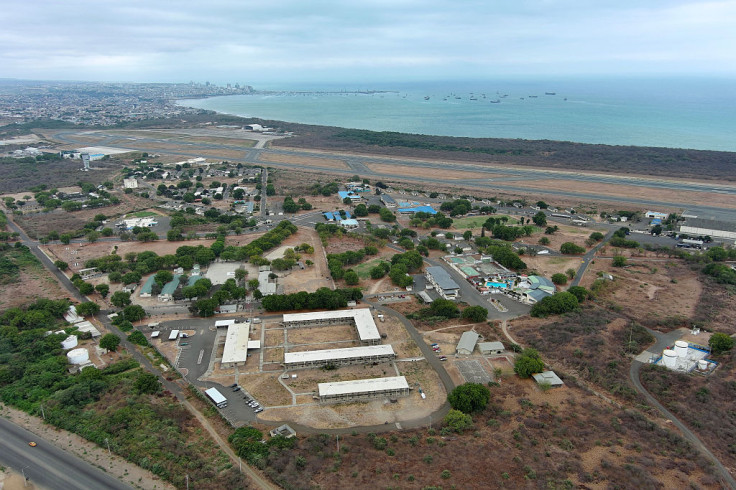
Ecuadorians are set to decide whether to allow foreign military bases to return to the country in a referendum scheduled for Sunday, Nov. 16. The vote could reopen the door to a U.S. presence in the South American nation, an idea the Trump administration has expressed interest in pursuing.
Ecuador has a long history of hosting foreign military bases. The U.S. operated a base in the coastal city of Manta during World War II and again from 1999 to 2009. But a constitutional change under then-President Rafael Correa later banned foreign military outposts.
Unlike previous administrations, President Daniel Noboa has expressed support for U.S. forces returning. Earlier this month, Noboa met with U.S. Homeland Security Secretary Kristi Noem to discuss reopening the former U.S. military base in Manta, a coastal city in Ecuador, as part of the country's strategy against organized crime.
U.S. Secretary of State Marco Rubio has also voiced support. "If we're invited to return, we'll consider it. It's a very strategic point," he said during a visit to Quito. "They are a sovereign country, and they have to invite us to come, and we will take this into consideration," citing Ecuador's alignment with the U.S. on fighting narcoterrorism, illegal fishing, and mining.
According to reports by EFE, Noboa says the initiative would not necessarily limit the agreement to just military bases, but it would also include illegal fishing control bases and drug enforcement centers or facilities shared with multiple countries.
"The goal is to create an international cooperation hub for maritime security and anti-drug operations," Noboa said, arguing that the Correa administration "handed the country over to drug trafficking" under the guise of defending sovereignty.
Interior Minister John Reimberg added that Ecuador must "be allied not only with the U.S. but with many nations" in the fight against narcotrafficking and terrorism.
The government also said it is in talks with Brazil about a possible Amazon police base in the provinces of Sucumbíos and Orellana, heavily affected by illegal mining.
Once considered one of the safest countries in Latin America, Ecuador has been transformed by drug trafficking and organized crime. The 2025 Country Conditions Report from the U.S. Committee for Refugees and Immigrants found that Ecuador's homicide rate has soared from 6.7 per 100,000 people in 2020 to 44.5 in 2025, the highest in South America.
As the Noboa administration works to curb violence, the referendum represents another attempt to seek U.S. assistance in addressing the country's security crisis. However, the proposal has faced strong opposition from critics who argue that allowing foreign bases will not resolve Ecuador's deepening instability.
"Noboa wants to hand over our country, our sovereignty, and our resources to foreign economic and military powers," said opposition leader and former presidential candidate Luisa González, as reported by EFE.
As noted by the Ecuadorian digital outlet Primera Plana, a national survey from the firm Clima Social found that 43 percent of Ecuadorians surveyed oppose the installation of foreign military bases, and only 38 percent showed their support.
The poll stands in contrast to comments made in September by Gabriela Sommerfeld, Ecuador's foreign minister, who said that roughly three-quarters of Ecuadorians support the return of a U.S. military base.
No formal agreement or timeline has been announced for a potential base. Talks are expected to continue after the referendum, which will determine whether Ecuador will lift the constitutional ban in place since 2008.
© 2025 Latin Times. All rights reserved. Do not reproduce without permission.







